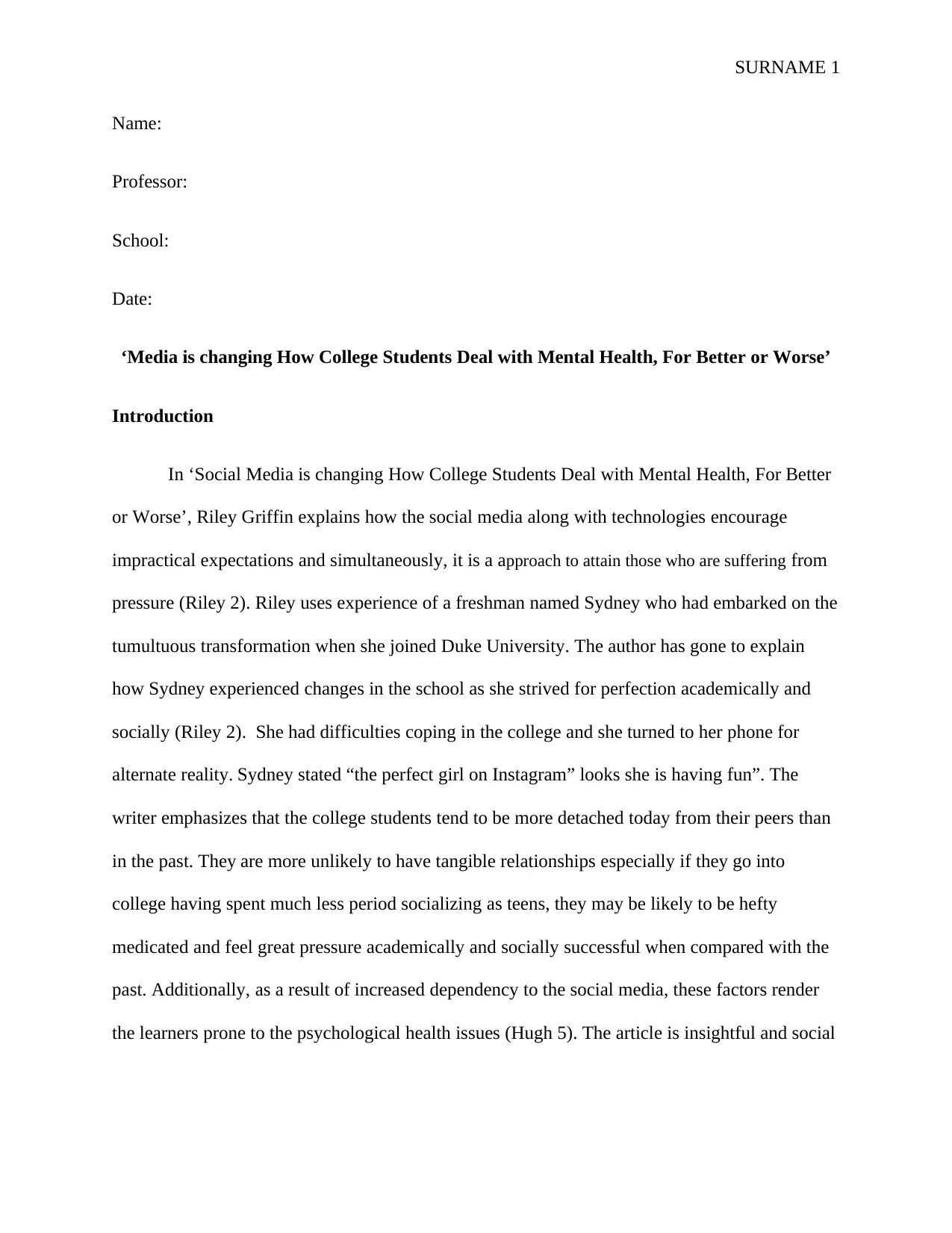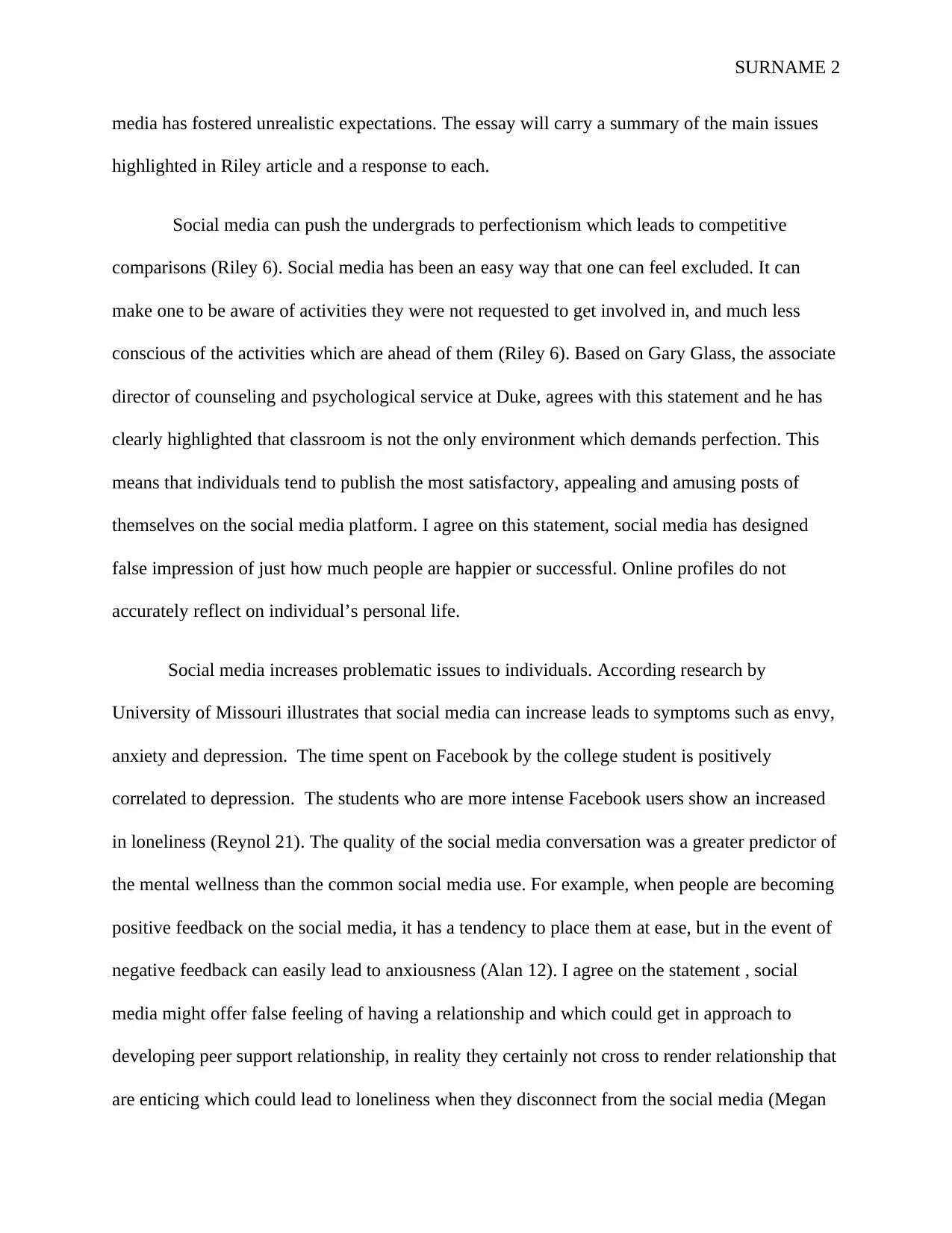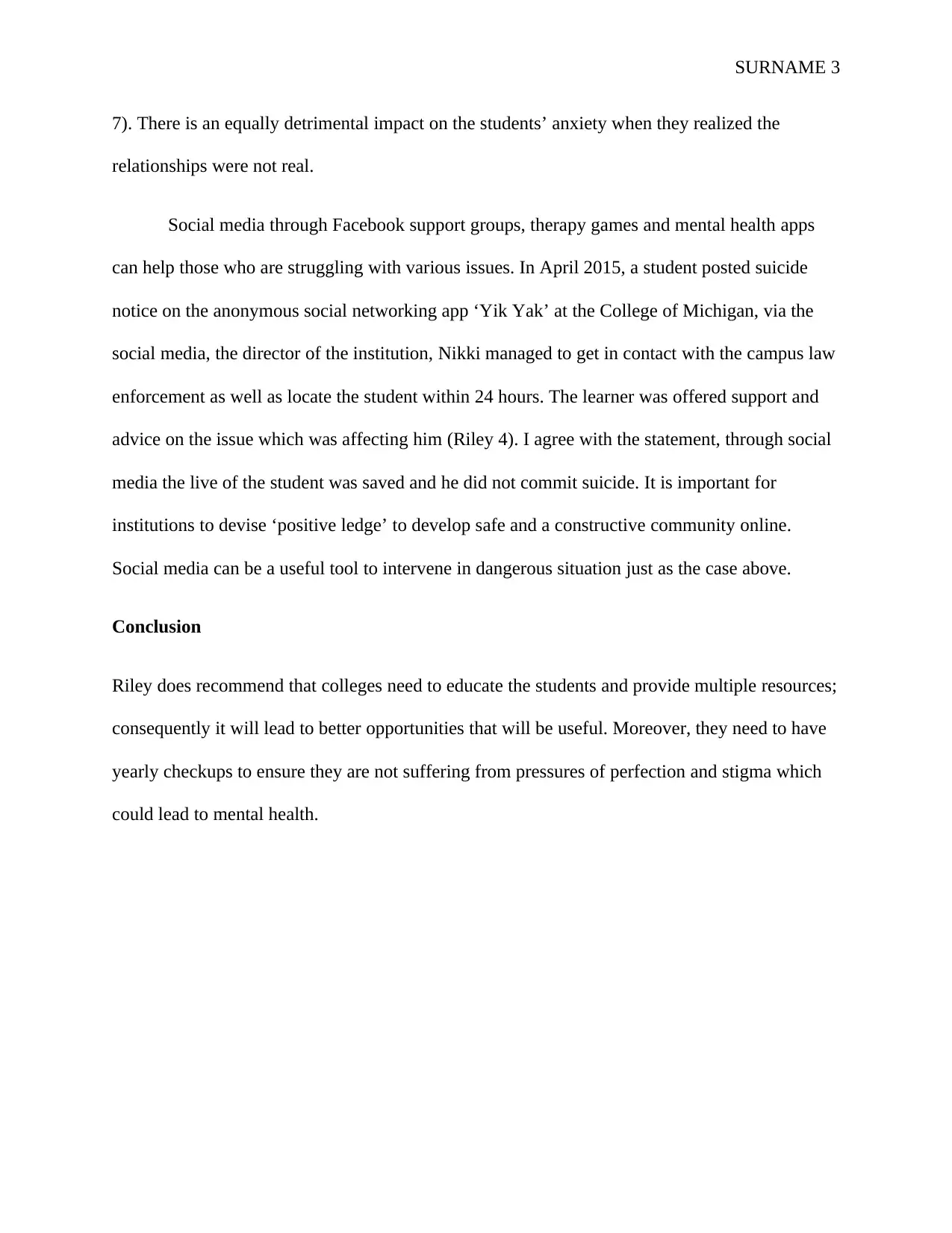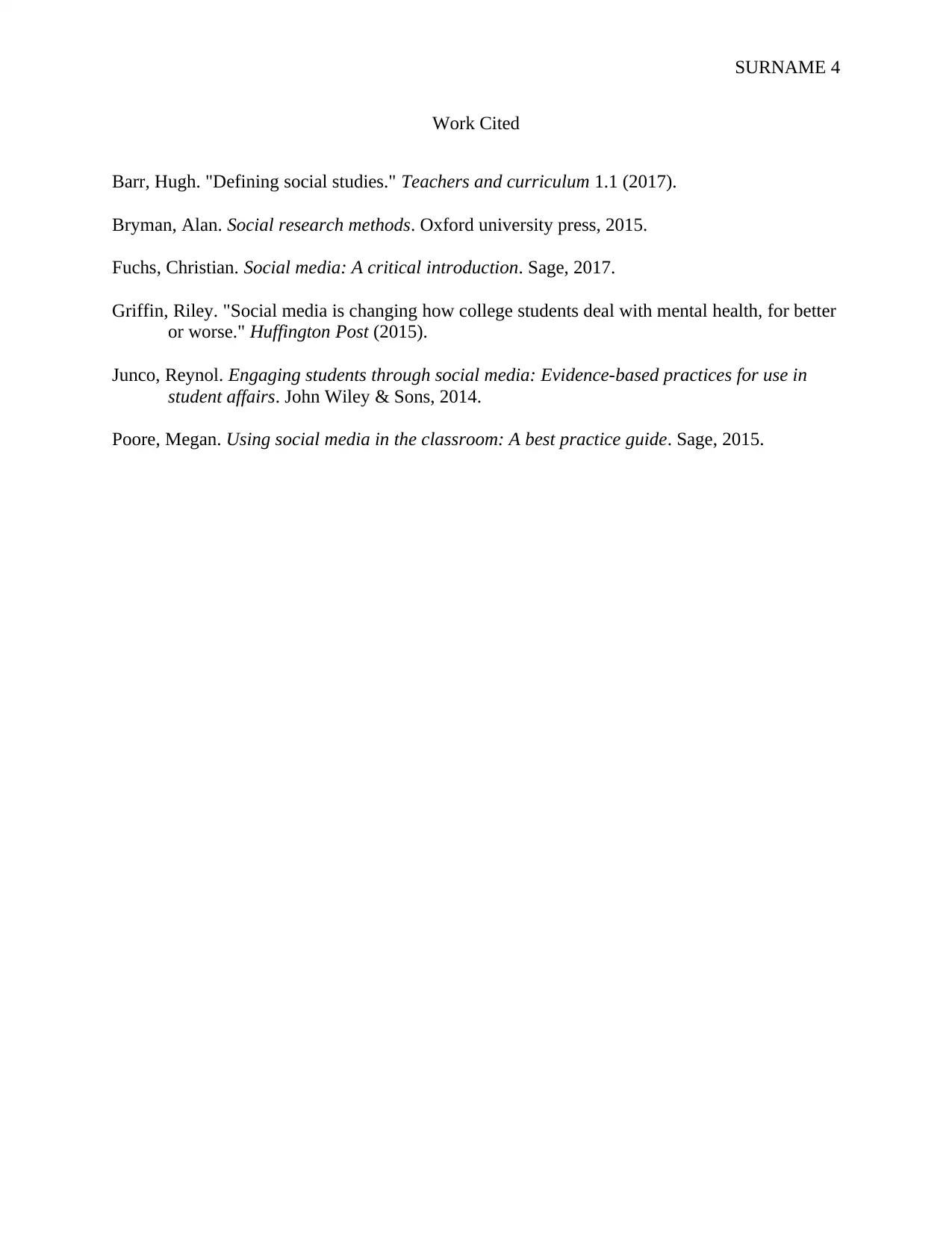ENGL 1301 - Analyzing Social Media and College Mental Well-being
VerifiedAdded on 2023/06/14
|4
|996
|438
Essay
AI Summary
This essay summarizes and responds to Riley Griffin's article, 'Social Media is changing How College Students Deal with Mental Health, For Better or Worse,' which explores the complex relationship between social media and the mental well-being of college students. The essay highlights how social media fosters unrealistic expectations, leading to competitive comparisons and feelings of exclusion among students. It acknowledges the potential for increased anxiety, depression, and loneliness due to the curated and often misleading portrayals of success and happiness on these platforms. However, the essay also recognizes social media's positive aspects, such as its ability to provide support through online communities, facilitate interventions in crisis situations, and offer access to mental health resources. The essay concludes by emphasizing the need for colleges to educate students about the potential pitfalls of social media and provide resources to promote mental health and well-being.
1 out of 4











![[object Object]](/_next/static/media/star-bottom.7253800d.svg)